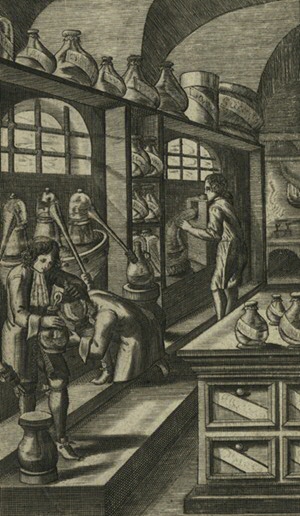Emphasis on blood, sweat and tears changed medical science
Blood, urine, milk, sweat and sperm. A PhD project carried out by historian Ruben Verwaal has shown that these substances are not only of interest to physicians, chemists and biologists. Verwaal examined the ways in which eighteenth-century doctors studied bodily fluids, and concluded that this was the start of pioneering medical developments that took place a hundred years later. He will be awarded a PhD by the University of Groningen on 14 June.
Ancient and mediaeval medicine was based on the four ‘humours’ (blood, black bile, yellow bile and phlegm). In the seventeenth century, the focus shifted to anatomy, and physicians and medical students turned their attentions to anatomical operating theatres, physical atlases and mechanical models of the body. Verwaal’s research shows that was another shift after 1700. His thesis discusses five bodily fluids and features chapters with appropriate titles such as The nature of blood, Piss prophets and pee merchants, Crying over spilt breast milk, Sweat it out! and Seed.
Emphasis on fluids
In his thesis, Verwaal describes how eighteenth-century physicians again focused on bodily fluids, such as blood, urine and milk. New research methods developed at a rate of knots and devices such as thermometers and hydrometers, and chemical laboratories for mixing, distilling and fermenting began to take off. ‘Anatomy was about the structure of the body,’ Verwaal explains. ‘But you needed to understand the fluids to get to grips with the physiology behind it – reproduction, digestion, circulation, transpiration and urination. These new techniques gave physicians new insight into the nature and volatility of our juices.’

Boerhaave: innovator during a recession
The Boerhaave School, as it is referred to, played an important part in this development. In the eighteenth century, Dutch universities found themselves in a recession. Student numbers were dropping and breakthroughs were few and far between. But a crisis can be a good excuse for new experiments. Verwaal describes the rich, widespread community of the Boerhaave School, named after the famous doctor and chemist Herman Boerhaave. A community of physicians and researchers developed around Boerhaave; they carried out new research and promoted new medical practices.
Break with tradition
The revolution in medical science is thought to have taken place around 1800. This was the point at which medical science began to revolve around statistics and detailed, quantitative lab research. Verwaal has his doubts. ‘I can’t deny that there were a lot of pioneering developments after 1800. But to my mind, much of the progress had already started a hundred years earlier, during the days of the Boerhaave School.’

Current thinking on bodily fluids
Verwaal’s research shows that our ambiguity towards our bodily fluids is nothing new. ‘These days, pregnant women are told how important breast milk is. Just a few decades ago, this was quite the opposite. The example from the eighteenth century shows how the issue of breast milk is subject to trends. Our problematic relationship with urine can even have negative consequences. Take kidney patients, for example, who have to collect urine for 24 hours. The idea that urine used to be a very valuable commodity may help people to be less squeamish about the litre of urine sloshing about in their collection vessel.’
More information
Ruben Verwaal, r.e.verwaal@rug.nl , website Verwaal
| Last modified: | 17 September 2021 12.28 p.m. |
More news
-
16 April 2024
UG signs Barcelona Declaration on Open Research Information
In a significant stride toward advancing responsible research assessment and open science, the University of Groningen has officially signed the Barcelona Declaration on Open Research Information.
-
02 April 2024
Flying on wood dust
Every two weeks, UG Makers puts the spotlight on a researcher who has created something tangible, ranging from homemade measuring equipment for academic research to small or larger products that can change our daily lives. That is how UG...
-
18 March 2024
VentureLab North helps researchers to develop succesful startups
It has happened to many researchers. While working, you suddenly ask yourself: would this not be incredibly useful for people outside of my own research discipline? There are many ways to share the results of your research. For example, think of a...

